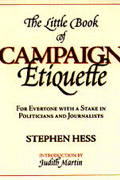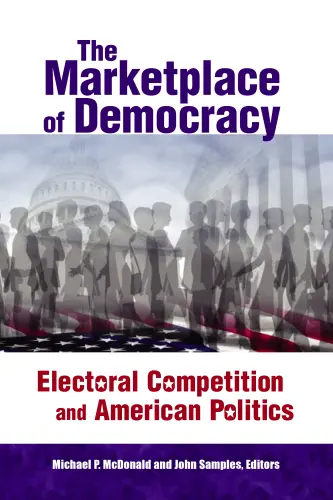Editor’s Note: This blog post is part of The Primaries Project series, where veteran political journalists Jill Lawrence and Walter Shapiro, along with scholars in Governance Studies, examine the congressional primaries and ask what they reveal about the future of each political party and the future of American politics.
It’s official. With Senator Lamar Alexander’s primary win last week, the Tea Party has failed to defeat any sitting incumbent Republican Senators this cycle. And yet, in spite of successes on the part of the mainstream Republican party, as we go into the final stretch of the 2014 primaries the Tea Party seems to be rather firmly in control of the Republican establishment—instead of the other way around. In the last week of the congressional session, the Republican leadership was embarrassed by a revolt engineered on the Senate side by Ted Cruz that kept them from addressing the crisis of children at American borders. And Tea Party opposition almost kept them from returning home with a solution to the crisis at the Veteran’s Administration.
So what’s going on here? Why is the tail wagging the dog? Two possible explanations come to mind. The first is purely and simply cowardice. The Republican leadership is afraid of the Tea Party in spite of their poor performances at the polls. Add to this the fact that, having gotten rid of earmarks and other leadership perks of the past, Congressional leaders are perhaps in a weaker position than ever before to exercise control over a recalcitrant group.
The second explanation is margins—something The Primaries Project will be exploring in a more systematic way as the season ends. Michael Barone, the longtime analyst of congressional elections, suggests in a recent column that there is “more turbulence and undercurrents among Republican primary voters than usual.” He goes on to say, “The evidence is that incumbents — both those the mainstream media call Tea Partiers and those they call the party establishment — have been prevailing by tenuous margins in primaries that in the pre-Tea Party years would almost certainly not have been seriously contested.”
To the casual observer of politics winning is what matters. But to the insiders margins are the name of the game. To members of Congress accustomed to running without any opposition or to winning with margins of over 60% of the vote – shrinking margins are portents of problems to come. In Kansas, Barone points out, the incumbent Senator beat his Tea Party challenger by 48 to 40. In Tennessee incumbent Senator Lamar Alexander beat his Tea Party challenger—by 9 points. And in Mississippi incumbent Senator Thad Cochran beat his Tea Party challenger by less than 2% of the total vote (a mere 7,667 votes) and he did that by calling on African American Democrats to cross over and vote in the Republican primary runoff.
Writing in the latest issue of The Forum, an online political science journal, Ken Goldstein, Matthew Dallek and Joel Rivlin argue that “…in American political campaigns, the marginal variance – one, two, or three percentage points – can mean the difference between victory and defeat. Minute changes in the loyalty of partisans (performance) and turnout can move election results by a percentage point or two – and produce numbers that would have flipped Presidential outcomes in 2000 and 2004 – Florida in the former, Ohio in the latter – and some key Senate races over the last dozen years (Missouri and Minnesota in 2002; Virginia and Montana in 2006; Colorado and Illinois in 2010; North Dakota and Nevada in 2012, just to cite a handful of cases).
So back to our original question—is the tail wagging the dog when it comes to the Republican leadership? Probably not. The absence of tools to enforce party discipline, the ubiquity of primary challengers to Republican incumbents and the early suggestion that incumbent margins are shrinking suggest that, in spite of Tea Party losses they are still having an enormous impact on their party and thus on the entire political system.








Commentary
The Primaries Project: The Importance of Margins
August 11, 2014